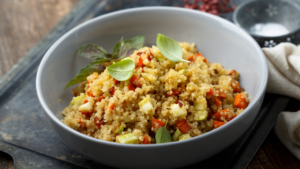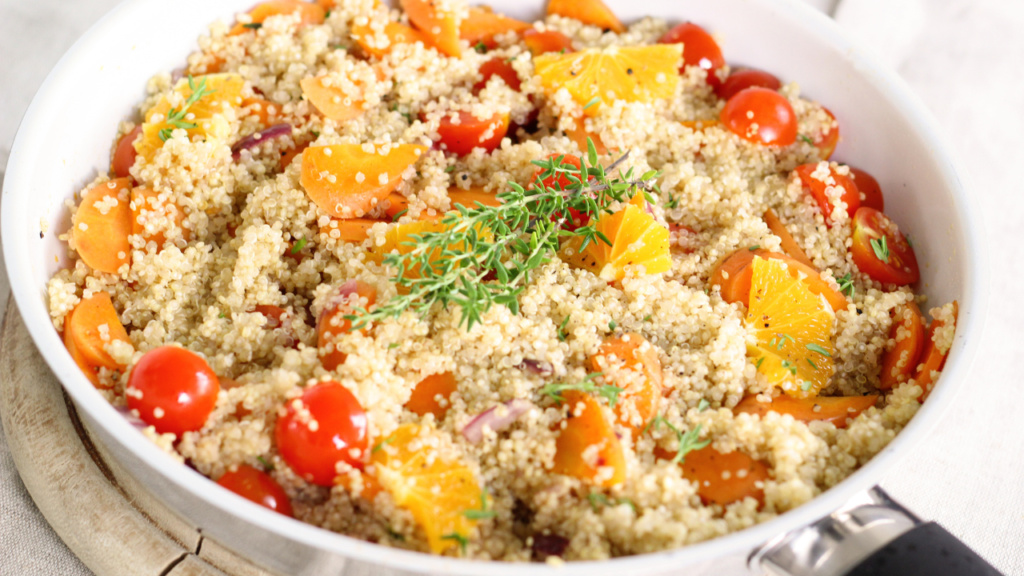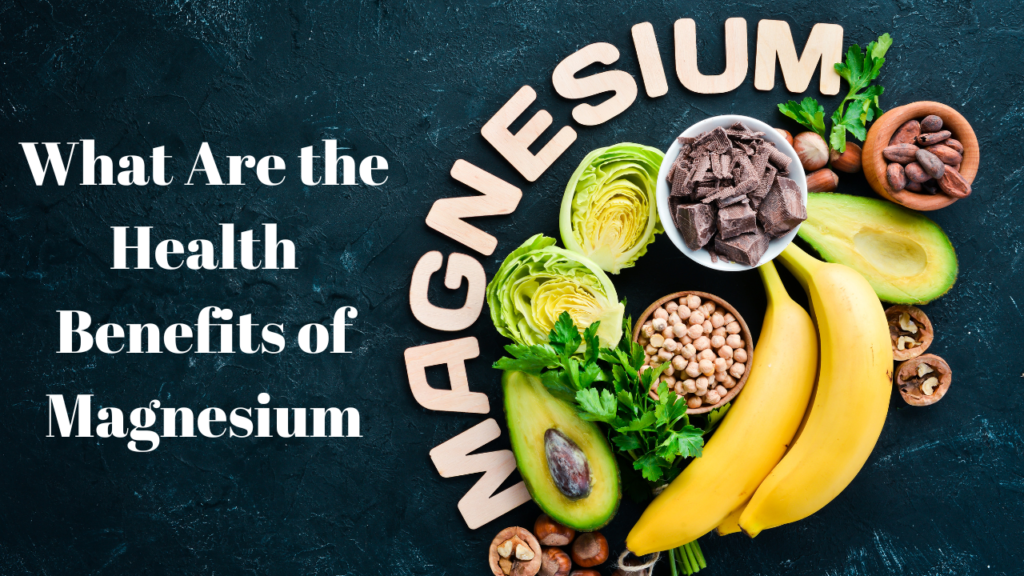Health Benefits of Quinoa.

Quinoa (Chenopodium quinoa Willd.) is a famous sans-gluten grain with a rich history. Concentrates on showing that eating quinoa may give a few medical advantages, including giving a wellspring of significant supplements and further developing specific coronary illness risk factors.
Quinoa has been utilized as a nourishment for more than 8,000 years and was a staple yield of the Incas, an old Peruvian civilization.2 Now, quinoa has become well known in numerous regions of the world, including the U.S., as it’s rich in supplements like protein, fiber, and magnesium and is normally without gluten.
This is the very thing that you want to be aware of quinoa, including its potential medical advantages, sustenance, and how to add quinoa to your eating routine.
It’s a Supplement Thick Carb
However it’s frequently alluded to as a grain, quinoa is really the eatable seeds of the Chenopodium quinoa plant. This is the reason quinoa is considered a pseudocereal grain.
Quinoa is a nutritious carb source, since it’s wealthy in a few significant supplements, including protein, fiber, folate, magnesium, zinc, and iron.
Fiber benefits stomach related wellbeing by advancing customary and agreeable defecations and supporting the valuable microscopic organisms that dwell in your gastrointestinal system. Tragically, most Americans miss the mark regarding the ongoing 28-gram (g) suggested day to day fiber consumption, which could adversely affect wellbeing in various ways, for example, adding to clogging, diverticulitis, and other stomach related issues. A 1-cup serving of cooked quinoa gives north of 5 g of fiber or 18% of the ongoing DV, so it’s a shrewd method for hitting your everyday fiber needs.
Quinoa is likewise higher in protein than numerous different starches, giving 8 g of protein for every cooked cup. Since quinoa is high in fiber and protein, which are supplements that assist with advancing satiety, picking quinoa over grains lower in fiber and protein, like white rice, may assist you with feeling more fulfilled after dinners.
While, the amino corrosive organization of quinoa can change in light of how and where it is developed, yet it contains every one of the nine fundamental amino acids, so it’s a finished protein.
All things considered, quinoa is a decent wellspring of protein and can assist you with meeting your day to day protein needs.
Notwithstanding protein and fiber, quinoa gives various nutrients and minerals, including folate, potassium, iron, and magnesium. It’s particularly plentiful in magnesium, a necessary mineral for many enzymatic responses in the body, and is engaged with glucose guideline, muscle compression, nerve capability, pulse upkeep, and DNA blend. Only 1 cup of quinoa covers 28% of your day to day needs for this fundamental mineral.
7 Grains That Are Great Wellsprings of Protein
Contains Defensive Plant Mixtures
Notwithstanding supplements like fiber and magnesium, eating quinoa can likewise expand your admission of defensive plant mixtures, for example, polyphenols like ferulic corrosive, gallic corrosive, quercetin and kaempferol.
Polyphenol compounds have cancer prevention agent and mitigating properties and assist with safeguarding cells from oxidative harm. These substances assist with killing receptive oxygen species (ROS), which are connected to a few medical issue.
Concentrates on show that consuming an eating regimen high in polyphenols, for example, the ones found in quinoa, may assist with working on specific parts of wellbeing, for example, circulatory strain and blood lipid levels, and may assist with diminishing the gamble of conditions like coronary illness and neurodegenerative disease.
Quinoa additionally contains phytosterols, similar to beta-sitosterol, which likewise offer cell reinforcement, cholesterol-lessening, and mitigating benefits.
Normally Without gluten
Gluten is the aggregate term for a gathering of proteins found in grains like wheat and grain. However the vast majority can devour gluten-containing grains and different food sources made with gluten, certain individuals, like those with celiac sickness and non-celiac gluten responsiveness (NCGS) need to stay away from gluten for wellbeing reasons.
Quinoa is a normally sans gluten starch that is a protected decision for individuals who need to or who like to keep away from gluten. Quinoa is a more nutritious choice than numerous other without gluten grains, like white rice, as it’s high in fiber, protein, nutrients, and minerals. Likewise, quinoa is a decent wellspring of a few supplements that will generally be low in the weight control plans of individuals who follow without gluten eating designs, like zinc, iron, and fiber.
Picking more nutritious without gluten food varieties, as quinoa, over less nutritious sans gluten carb sources might assist individuals with celiac sickness and NCGS meet their day to day supplement needs.
May Further develop Coronary illness Hazard Variables
Quinoa is a decent wellspring of a few supplements that might assist with further developing coronary illness risk factors like LDL cholesterol and fatty substance levels. For instance, quinoa contains fiber, including solvent fiber. Solvent fiber ties to cholesterol in the small digestive system, keeping it from being consumed into your circulation system. Hence, eating food varieties that contain dissolvable fiber, as quinoa, may assist with lessening blood lipid levels.
Besides, the high fiber content of quinoa may assist with further developing satiety, which could advance sound body weight, one more significant figure heart wellbeing.
In a recent report that included 40 more seasoned grown-ups, the members experienced fundamentally more prominent decreases in LDL cholesterol, cholesterol to HDL proportion, and body weight when they consumed 15 g of quinoa flour bread rolls day to day for quite some time contrasted with when they consumed a control treatment of wheat-based rolls for a similar time period.
Quinoa utilization has likewise been displayed to decidedly affect glucose levels and fatty oil levels, the two of which are fundamental for heart wellbeing. A 2023 survey that included seven examinations found that eating quinoa usefully affected fasting glucose levels, while a recent report found that grown-ups who consumed 50 g of quinoa for quite a long time encountered a huge decrease in fatty substance levels.
This recommends that adding quinoa to your eating routine might be a useful method for advancing and safeguard heart wellbeing.
Healthful Realities of Quinoa
Quinoa gives various significant nutrients and minerals and is a decent wellspring of fiber and protein. Here is the nourishment breakdown for a 1 cup serving of cooked quinoa.

Calories: 222
Protein: 8.14 g
Fat: 3.55 g
Starches: 39.4 g
Fiber: 5.18 g
Folate: 77.7 micrograms (mcg) or 19% of the Day to day Worth (DV)
Vitamin B6: .228 milligrams (mg) or 13% of the DV
Copper: .355 mg or 39% of the DV
Iron: 2.76 mg or 15% of the DV
Zinc: 2.02 mg or 18% of the DV
Manganese: 1.17 mg or 51% of the DV
Magnesium: 118 mg or 28% of the DV
Phosphorus: 281 mg or 22% of the DV
Quinoa is a decent wellspring of a few supplements, yet is particularly wealthy in copper, manganese, magnesium, iron, folate, and phosphorus, B6, and zinc.
Individuals following plant-based counts calories are bound to be lacking in a portion of these supplements, including iron and zinc, so quinoa settles on a shrewd decision for the people who follow veggie lover or vegan diets.
Zinc assumes a significant part in safe capability, cell division, and protein and DNA combination, so getting ideal sums consistently is fundamental for health.
Quinoa is likewise a superb wellspring of copper, a necessary mineral for red platelet creation, nerve cell and synapse union, and energy production.
Notwithstanding nutrients and minerals, quinoa is a decent wellspring of sugars, protein, and fiber.
Dangers of Eating Quinoa
Quinoa doesn’t accompany numerous wellbeing gambles. In any case, it’s vital to get ready quinoa accurately as it contains compounds called antinutrients. Saponins, tannins, and phytic corrosive are antinutrients in quinoa that might decrease the retention of specific supplements, like iron and zinc.
However these substances can influence supplement retention, certain planning techniques, for example, flushing or splashing quinoa prior to cooking or buying grew quinoa items, can assist with decreasing these mixtures and consequently work on its supplement’s bioavailability, which is the degree to which the supplements become totally accessible to your body.
Also, it’s feasible to be hypersensitive to quinoa. On the off chance that you’re sensitive to quinoa, you ought to stay away from quinoa and all quinoa-containing products.
Ways to consume Quinoa
Quinoa rushes to plan and can be remembered for various recipes. The following are a couple of ways of consolidating quinoa into your eating routine:
Make an exquisite quinoa salad with hacked vegetables and an olive oil vinaigrette
Have a go at utilizing quinoa instead of oats to make a warming, nutritious porridge
Add quinoa to soups and stews
Use quinoa flour to make sans gluten prepared products like biscuits and breads
Add quinoa to plates of mixed greens and use it as a base for grain bowls
Make a quinoa stuffing for vegetables like peppers and winter squash
Make quinoa pudding for a higher-protein sweet treat
When appropriately ready, quinoa ought to have a feathery look, a delicate surface, and a gentle taste. Remember that there are a few kinds of quinoa, including red and dark quinoa, so you might have to attempt a couple of types to limit the one that best suits your taste inclinations.
A Speedy Survey
Quinoa is a nutritious, without gluten grain that might help wellbeing in more ways than one. It’s loaded with significant supplements, like fiber, protein, magnesium, iron, and zinc, and furthermore gives a wellspring of defensive plant compounds, as polyphenols.
Eating quinoa may assist you with meeting your day to day supplements needs and may help your heart wellbeing.
Not exclusively is quinoa nutritious, however it’s not difficult to make and can be integrated into different sweet and appetizing dishes.


